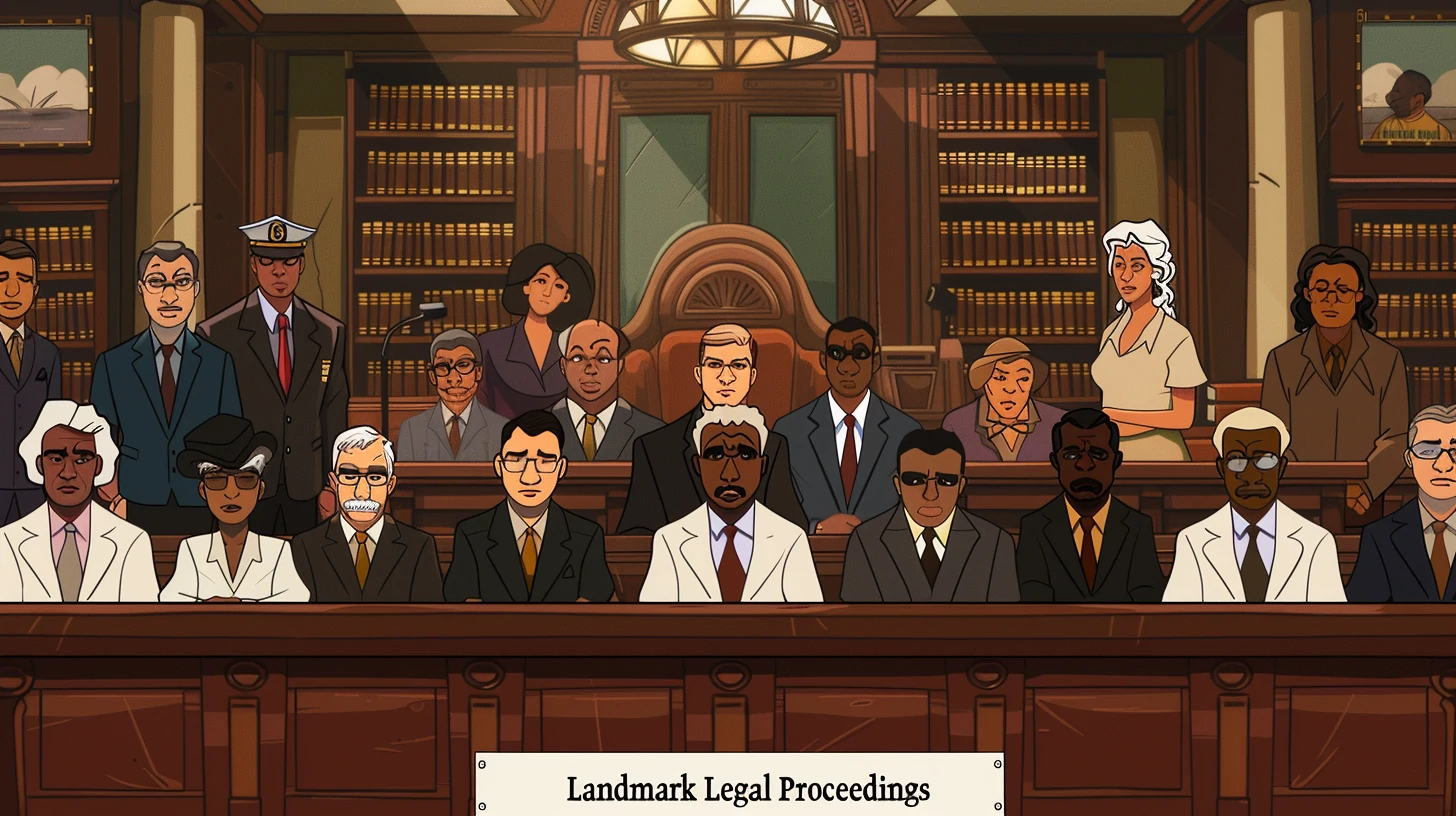Today, in a courtroom humming with the palpable tension of historical significance, the final member of a twelve-person jury was sworn in, signifying the official commencement of one of the most closely watched criminal trials in recent American history. This trial involves none other than the former President Donald Trump, marking a watershed moment in the annals of U.S. jurisprudence. The event unfolded in Manhattan, the heart of New York City, where the fabric of Americas melting pot is woven, providing a fitting backdrop for a trial of such monumental national and international relevance.

The selection of the jury did not occur in isolation. It was the culmination of a painstaking process characterized by extensive vetting procedures designed to filter out bias in a case that is as politically charged as it is legally complex. The potential jurors faced a barrage of questions aimed at uncovering any preconceived notions or biases that might skew their judgment in a case that has divided public opinion across the ideological spectrum.
The twelve New Yorkers who now bear the responsibility of judgment represent a cross-section of the City diverse demographics. They include educators, tradespeople, professionals, and retirees, each bringing their unique perspectives to a process that will require them to navigate through a labyrinth of legal arguments and evidentiary presentations. Their task is daunting: to impartially adjudicate on matters that concern actions taken at the highest levels of government and which have sparked intense debate about the limits of presidential power and accountability.
As the trial progresses, it will delve into a myriad of complex legal issues. At the heart of the proceedings are charges that the former President engaged in activities that allegedly breached legal and ethical standards expected of the highest office in the land. These charges have not only legal ramifications but also significant political and social implications, reflecting deep divisions within American society about the nature of presidential conduct and the accountability of public officials.
The courtroom, therefore, becomes more than a mere venue for legal argumentation; it transforms into a crucible where broader questions about democracy, governance, and the rule of law are contested and answered. This trial tests the robustness of American legal principles, particularly the notion that no one, not even a president, is above the law. This principle is foundational to the American legal and political ethos, asserting that the law must govern, a concept rooted deeply in the countrys constitutional framework.
The global implications of this trial are equally significant. Around the world, governments and political analysts are watching closely, as the outcome could recalibrate the balance of power between branches of government not only in the United States but also in other democracies where similar tensions exist. The international community is particularly attentive, considering how shifts in U.S. policy and political orientation under Trumps administration have affected global geopolitics-from trade agreements to environmental policies and alliances.
In-depth legal analyses anticipate that the trial could set precedents in several areas, including the application of laws related to obstruction of justice, the use of presidential powers, and perhaps most contentiously, the interpretation of statutes regarding election interference. Legal experts forecast that the arguments presented could refine or redefine judicial interpretations of statutes that have sat relatively undisturbed for decades.
Media coverage of the trial is expected to be unprecedented, with major networks and publications dedicating significant resources to tracking every development. In an era where media consumption and public perception are heavily influenced by real-time, 24/7 news cycles, the role of the press as both observer and interpreter of the legal proceedings becomes critically important. The medias portrayal of the trial could influence public opinion significantly, affecting the broader societal understanding of the issues at stake.
As this trial unfolds, it promises to be a defining moment in the legal and political history of the United States. The decisions made in this Manhattan courtroom will likely resonate through the annals of American legal jurisprudence, influencing future generations of legal professionals, scholars, and policymakers. The eyes of the world are fixed on this courtroom, and the pressure on those twelve jurors is immense. Their verdicts will not only determine the legal fate of a former president but also help define the contour of American democracy for years to come.


